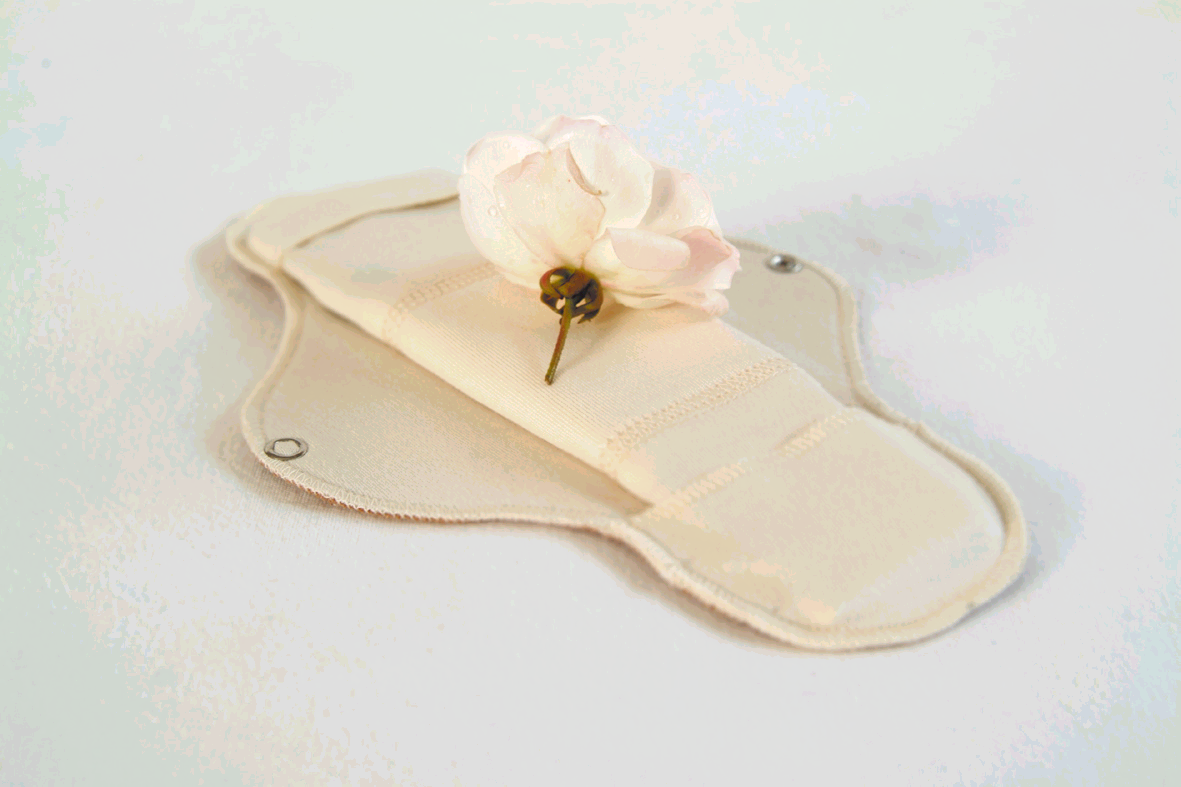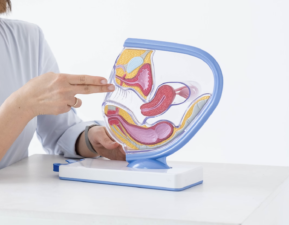Just the way disposable diapers are a nightmare for our environment and children’s health, so are all those disposable sanitary products being aggressively marketed.
Yes I know that for many, just as cloth diapers, the idea of cloth menstrual pads and moon cups are hard to swallow but really these days there are many converts, and more and more women are realising the multiple benefits of ditching those disposables.

So what are we actually talking about, what is available and just why and am I singing their praises so loudly?
Cloth pads for menstruation
Cloth pads are nothing new, and there are centuries of history dedicated to their us: although introduced to the market at the end of the 19th century disposable sanitary products only really became popular about 80 years ago with the market expanding to what it is today in the last 40 years. And women were doing just fine before that. Don’t let those big corporate money makers let you believe anything else.

Problems with disposable sanitary products
- pollutants in the growing of cotton
- paper production and plastics
- health issues such as toxic shock syndrome
- the actual disposal of the product
Hard statistics for women’s health
To get you started here are some of those entertaining facts and figures compiled from a study in the UK.
- On average a woman will use around 12,000 disposable towels and tampons in her lifetime
- 98% of which are flushed down the toilet,
- Of which an estimated 52% go directly to the sea untreated, not a pleasant thought,
- They also cause 75% of blocked drains
- Tampons take at least 6 months to biodegrade and towels are not biodegradable, the plastic may breakdown into smaller pieces (ideal fish food!) and they are filled with a cocktail of chemicals which keep them white and absorbent.
- Disposable sanitary products put even more pressure on landfills than disposable nappies.
The other main environmental issue surrounding these products is the manufacturing process and the materials used. Tampons are made mainly from cotton and rayon, for issues surrounding the cotton industry read Greening Your Baby’s Wardrobe, but in a nutshell conventional cotton is one of the top 3 polluters in agriculture and the processing of cotton is just as chemically laden, not as innocent or as natural as we thought.
Rayon is made from woodpulp, again a chemical process, plus you have to chop those trees down first! And sanitary towels are made mainly from rayon and plastics.
Tampons and sanitary towels are toxic
One other issue regarding the environment and our health was the bleaching agent used, namely chlorine gas which causes dioxins, a known carcinogen, though thankfully due to pressure from health and environmental groups many manufacturers stopped using it and levels of dioxins found have dropped though occasionally trace levels can still be found.
It is not just the environment that these products pose a threat to, many health issues have been connected as well: Toxic Shock Syndrome, though rare is something every women should know about if using tampons, and if tampons are your preferred choice then avoid ones made from cotton and rayon (100% cotton tampons have shown no links TSS), or with lubricants as these may also contain parabens, choose organic cotton tampons (Natracare and Organyc are available in Israel).
It is also known that many women suffer from allergic reactions from the materials and chemicals used in towels, sometimes just heightened sensitivity and soreness though often increased rates of Thrush are also associated with these products.
Homemade Pad and Tampon Alternatives
So what are our options; well I am very happy to say that there are plenty available to us wherever we live. I live in Israel.
 My personal preference are organic cotton towels which you can buy or make yourself. Find ones with certified organic cotton that come in two parts making them extremely comfortable, very effective and very easy to care for.
My personal preference are organic cotton towels which you can buy or make yourself. Find ones with certified organic cotton that come in two parts making them extremely comfortable, very effective and very easy to care for.
Organic cotton is very soft, highly absorbent and breathable (something that disposables are not being made from plastic).
Many women who have changed over to cloth pads due to health reasons say that their symptoms disappear instantly. Pads are available in a range of sizes to fit every woman’s needs, and unique two part design (if you can find it) allows easy change of liners throughout the day.
I know women who sew their own.
Cloth pads are very easy to look after, just soak after use in cold water and place in your regular laundry cycle.

Mooncup is a good alternative to tampons
For those of us who prefer tampons, the Mooncup offers an excellent alternative, available at Bishvilenu, this menstrual cup is made from soft silicone and comes in two sizes; before and after birth.





i, personally, love the diva cup!
Here in the states we have a similar product, called Glad Rags and available at health food stores.